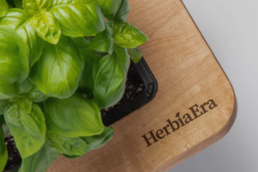As the world struggles with food security and nutrition challenges, there is growing acknowledgment that our current food system is broken and unsustainable. The current system relies heavily on industrial agriculture practices. These involve large-scale monoculture farming methods and heavy use of chemicals such as pesticides and fertilizer. These approaches are costly for farmers and come at a great environmental cost, inflicting severe damage on soil health and biodiversity. An agri-tech startup called Mycovation looks to solve this problem by harnessing the potential of mycelium.
What is mycelium? Mycelium is a naturally occurring fungus of white, root-like threads that grow throughout decaying plant material or agricultural waste. Fungal colonies composed of mycelium are found in and on soil and many other substrates.
Why mycelium?

We need new solutions to enhance nutrition and meet the growing demand for food in the future. One promising alternative that has emerged in recent years is mycelium. Mycelium offers tremendous potential for nutrition enhancement thanks to its unique ability to extract nutrients from soil or decaying matter and transfer them in a highly bioavailable form to plants or other organisms. In addition, mycelium can be engineered to secrete edible compounds like essential fats or vitamins, offering exciting new opportunities for creating sustainable foods of tomorrow. Therefore, with its incredible diversity of applications, mycelium presents a true paradigm shift in how we think about food production and sustainability.
Through research and development of this exciting new alternative, Mycovation has a chance not just to fix our broken food system but also to create a more nourishing future for generations to come.
Accelerating the adoption of plant-based alternatives
Mycovation aims to accelerate the adoption of plant-based alternatives. In addition, they aim to gradually replace plant proteins with mycelium-derived proteins. There is no question that the need to transition to a more sustainable food system is growing more urgent by the day. Numerous research studies have shown that current agricultural practices are damaging our planet. Moreover, it is accelerating climate change and threatening the future of humanity. Many agriculture companies have turned to plant-based alternatives to move away from traditional animal agriculture. While this approach is certainly important, there is also a need to seek more sustainable alternatives.
Mycelium-derived proteins can help to streamline food production in several ways. These novel proteins use less water and land than plant-based foods and animal products. Moreover, they can be grown in highly efficient vertical systems, allowing for denser urban farming in places that may not have been possible.
“The need to accelerate the adoption of plant-based alternatives and gradually replace plant proteins with mycelium-derived proteins is critical if we hope to create a more sustainable food system for future generations,” said Yashaswini Balaraju, Co-CEO of Mycovation.
MyX and MyMic
The solutions created by Mycoavation provide bespoke novel mycelium-derived ingredients with functionality, fortification, and nutrition for food and beverage applications. They create these solutions using their patentable AI-driven predictive algorithm, MycoSmart Platform. Furthermore, they have created the most realistic meat alternative called MyMic.
MyMic

They are functionally comparable to meat and have a similar look and feel to meat. MyMic line of protein mimics derived from edible mycelial strains using fermentation processes. Therefore they can be used to produce texturized products, such as meatballs and meat chunks, using biotechnology techniques.
MyX

MyX was Mycovaion’s first product line. It works on the principle of solid-state fermentation of nutritious plant-based ingredients with mushroom mycelium to fabricate products. MyX is rich in fiber content and comes in powder form. Therefore, it is great for adding to drinks for added health benefits.
Related Posts






